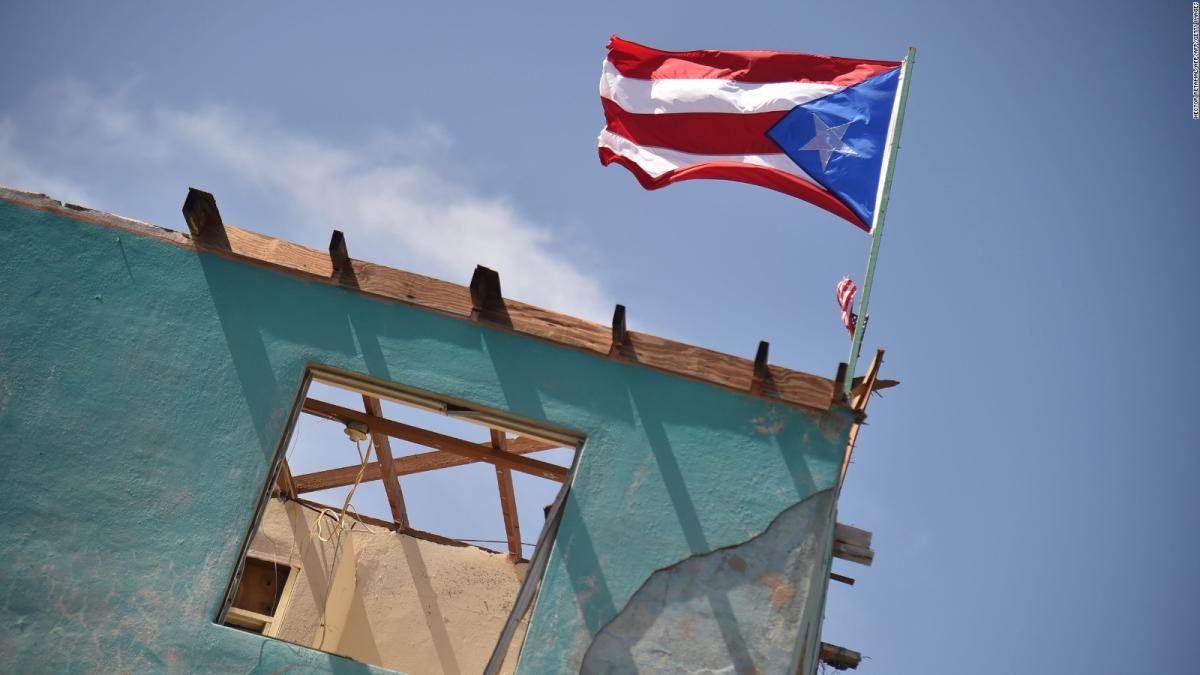Velázquez, CHC Chair Lujan Grisham Say Tax Bill Hurts Puerto Rico
Image

December 6, 2017
17 CHC Members Argue Republican Tax Bill Will Further Devastate Puerto Rico’s Economy
Washington D.C. – In the midst of Congress' ongoing tax negotiations, Rep. Nydia M. Velázquez (D-NY) and Rep. Michelle Lujan Grisham (D-NM), chair of the Congressional Hispanic Caucus (CHC) sent a letter to Republican leadership underscoring the harm that the current tax bill will impose on Puerto Rico's already fragile and recovering economy. By taxing the Island as a foreign jurisdiction, the bill will raise production costs which will cost manufacturing jobs and the economy. Signed by fifteen additional members of the CHC, the letter urges immediate action to amend the tax bill to prioritize Puerto Rico's recovery.
The full text of the letter is below. For a PDF, click here.
December 5, 2017
The Honorable Paul Ryan The Honorable Mitch McConnell
Speaker Majority Leader
U.S. House of Representatives U.S. Senate
H-232, U.S. Capitol 317 Russell Senate Office Building
Washington, DC 20515 Washington, DC 20515
Dear Speaker Ryan and Majority Leader McConnell:
Puerto Rico is too often an afterthought in the Congressional legislative process and this tax reform process proves it. H.R. 1 and S. 1 are disappointments to the 3.4 million citizens living in Puerto Rico. The bills have proven that Congress is derelict in its duty to provide for all Americans. Both bills ignore the fiscal and humanitarian needs of the Island. The Island is still recovering from the devastation caused by Hurricane Maria with residents still cleaning up, employees out of work, and businesses closed. Tax reform should have proven an opportunity for bipartisan work to address their needs. Yet, we have failed them. Congress has instead chosen to provide tax cuts to corporations in lieu of targeted assistance to Puerto Rico.
As drafted, H.R. 1 only temporarily helps the Island through the Section 199 domestic manufacturing and rum cover over provisions and S. 1 completely ignores the importance of them by leaving out any language to extend them. To better meet the needs of the Island, it is critical that you retroactively make permanent these two code sections. The rum cover would provide budgetary support to the territorial governments, while the Section 199 credit would be another step toward job creation and economic growth in the territories, helping the island's immediate recovery and long-term fiscal health.
Manufacturing is the lifeblood in Puerto Rico as it comprises over half the GDP of the Island and one-third of the Puerto Rico's revenues. In fact, the medical device and pharmaceutical manufacturing employ hundreds of thousands of jobs and contribute approximately 30 percent of Puerto Rico's GDP.
Furthermore, it ranks fifth in the world in pharmaceutical production and third in biotechnology. Puerto Rico has been treated as a foreign jurisdiction by federal tax law but is still subject to U.S. laws, making production and operating costs higher in Puerto Rico. Acknowledging this unique dynamic, Congress has ensured the competitiveness of the Island through the tax code – particularly as a manufacturing hub.
Unfortunately, these bills ignore that treatment and remove any hope Puerto Rico had to recover from its fiscal calamity. Section 4303 of the House bill penalizes the companies investing in Puerto Rico and its residents. By imposing a 20% excise tax on products manufactured in Puerto Rico, the bill leaves manufacturers harmed and Puerto Rico's treasury at risk of massive revenue loss. More importantly, it could result in a loss of 200,000 jobs on the Island. In addition, Section 14401in the Senate bill imposes a 12.5% tax on income derived from intellectual property held in foreign jurisdictions. This provision puts Puerto Rico at a disadvantage simply based on its treatment by Congress as a foreign jurisdiction in the tax code, even though it is part of the United States.
The bills remove any existing incentives for multinational companies to invest in Puerto Rico; and therefore disregarding a central tenant of tax reform–encouraging domestic investment and employment. The tax proposals impose excessive tax liabilities on companies that have proven their dedication to investing in their local operations and employees. Therefore, we recommend a special exemption be created to recognize the special situation Puerto Rico is in as a United States territory as it relates to international tax reform. Such changes should account for the unique tax structures in the U.S. territories.
Congress can and must do more to help our fellow Americans in Puerto Rico. These changes, which should be made in conference, represent positive steps forward to ensure all Americans are treated more equitably under the tax code. As you continue your work, we urge you to include these proposals and protect the interests of citizens who need our help. We appreciate your immediate attention to this matter and look forward to working with you in a bipartisan way to bring a tax reform that contemplates the needs of Puerto Rico.
Sincerely,
__________________________ __________________________
Nydia M. Velázquez Michelle Lujan Grisham
Member of Congress CHC Chair
__________________________ __________________________
Lucille Roybal-Allard Norma J. Torres
Member of Congress Member of Congress
__________________________ __________________________
Luis V. Gutiérrez Joaquin Castro
Member of Congress Member of Congress
__________________________ __________________________
Darren Soto Albio Sires
Member of Congress Member of Congress
__________________________ __________________________
Grace F. Napolitano Juan Vargas
Member of Congress Member of Congress
__________________________ __________________________
Adriano Espaillat Gregorio Kilili Camacho Sablan
Member of Congress Member of Congress
__________________________ __________________________
Tony Cárdenas Raúl Grijalva
Member of Congress Member of Congress
__________________________ __________________________
Jimmy Gomez Ruben Gallego
Member of Congress Member of Congress
__________________________
José E. Serrano
Member of Congress
###
The Congressional Hispanic Caucus (CHC), founded in December 1976, is organized as a Congressional Member organization, governed under the Rules of the U.S. House of Representatives. The CHC is dedicated to voicing and advancing, through the legislative process, issues affecting Hispanics in the United States, Puerto Rico and U.S. Territories.